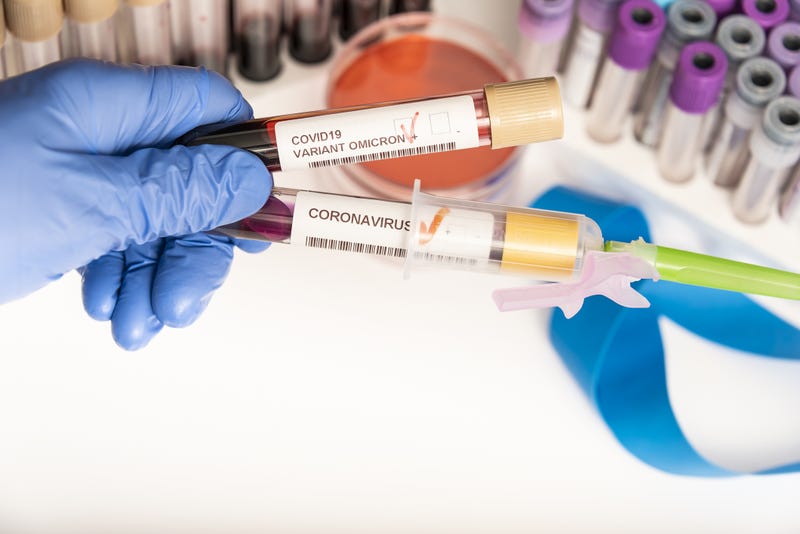
The latest surge of COVID-19 is causing case rates to skyrocket, and the Bay Area has been no exception.
San Francisco now has the third-highest transmission rate in the state despite its high vaccination numbers, but hospitalization rates are fortunately still at a manageable level.

"About 30 to 40% of those hospitalized who get COVID-19 are hospitalized for other reasons," said Dr. Jeanne Noble, emergency medicine doctor and Director of COVID Response for the Emergency Department at UCSF on KCBS Radio's "Ask an Expert" with Holly Quan and Dan Mitchinson on Tuesday.
This happens because "omicron is so infectious and pervasive," she said. On Monday night alone, she said six patients were admitted who tested positive for COVID-19 but had come into the hospital seeking treatment for other things, like a hip fracture.
People who have been coming in scared but exhibiting mild symptoms have been sent home, she said.
Right now, most of the cases are mild, and in people who are unvaccinated, said Noble. "We have very few patients who get hospitalized for COVID-19 who are immunocompetent and vaccinated," she said.
Thankfully, the hospital has rarely seen healthy, vaccinated people sick with omicron. Far more people are coming in right now with omicron, expressing few symptoms or none at all, than there were with delta.
This has been causing confusion, said Noble. "If you are symptomatic, omicron does seem to be causing more upper respiratory symptoms, more sore throats, more nasal congestion, and it seems to replicate much better than in the upper airways than in the lungs," she said.
It presents more as a common cold, than it does as the typical form of COVID-19, she said.
The hope right now is that this current surge will be the last significant one, and that eventually COVID-19 will become an endemic virus, said Noble.
This will change procedures and protocols, primarily, testing. "At some point in the future, massive testing of asymptomatic patients is going to have to go as we accept this as just another respiratory virus," she said.
We aren't at the endemic mark yet, but it's approaching.
"We're at this funny transition point where we're using a lot of significant COVID-19 restrictive policies that were really appropriate in the pre-vaccine era," said Noble. "And we haven’t really made that pivot to accepting COVID-19 infections as a thing that happens and we may not really even know about it."
At some point in the new year, hopefully sooner rather than later, it's likely that this acceptance of mild or asymptomatic COVID-19 infection will become a reality. "We really need to move on," she said.

